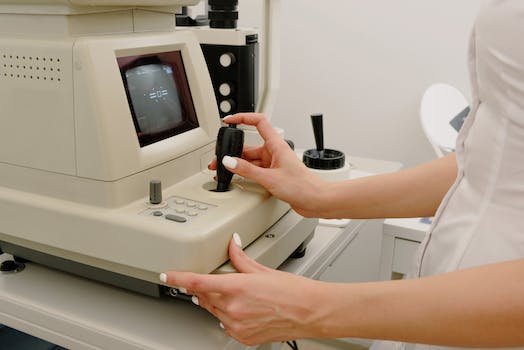How To Start A Business Delivering Medical Supplies
“Your guide to launching a successful medical supply delivery business.”
Introduction
Starting a business delivering medical supplies can be a lucrative venture, especially with the increasing demand for healthcare products and services. However, it requires careful planning and execution to ensure success. In this article, we will discuss the steps you need to take to start a business delivering medical supplies.
Creating a Business Plan for a Medical Supply Delivery Service
Starting a business delivering medical supplies can be a lucrative venture, especially in today’s world where the demand for medical supplies is high. However, before you dive into this business, it is essential to create a solid business plan that will guide you through the process. In this article, we will discuss the key elements of a business plan for a medical supply delivery service.
Market Research
The first step in creating a business plan is to conduct market research. This involves identifying your target market, understanding their needs, and analyzing your competition. You need to determine the demand for medical supplies in your area and the types of supplies that are in high demand. You can also research the pricing of medical supplies and the delivery services offered by your competitors.
Business Model
Once you have conducted market research, you need to determine your business model. Will you be delivering medical supplies to hospitals, clinics, or individual patients? Will you be offering same-day delivery or next-day delivery? You need to determine the logistics of your business, including the delivery routes, the number of vehicles you will need, and the number of employees required.
Marketing Strategy
Your marketing strategy is crucial to the success of your business. You need to determine how you will reach your target market and promote your services. You can use social media, email marketing, and other digital marketing strategies to reach potential customers. You can also attend medical conferences and events to network with healthcare professionals and promote your services.
Financial Projections
Your business plan should include financial projections that outline your expected revenue and expenses. You need to determine the cost of purchasing medical supplies, the cost of delivery vehicles, and the cost of hiring employees. You also need to determine your pricing strategy and the profit margins you expect to achieve.
Legal Considerations
Starting a business delivering medical supplies requires compliance with various legal regulations. You need to obtain the necessary licenses and permits to operate your business. You also need to ensure that you comply with healthcare regulations and data privacy laws. It is essential to consult with a lawyer to ensure that you are operating your business legally.
Conclusion
Starting a business delivering medical supplies can be a profitable venture, but it requires careful planning and execution. Your business plan should include market research, a solid business model, a marketing strategy, financial projections, and legal considerations. With a well-crafted business plan, you can start your medical supply delivery service with confidence and grow your business over time.
Navigating Legal Requirements for a Medical Supply Delivery Business

Starting a business delivering medical supplies can be a rewarding and profitable venture. However, before you can begin, it is important to navigate the legal requirements for this type of business. In this article, we will discuss the steps you need to take to ensure that your medical supply delivery business is compliant with all relevant laws and regulations.
First and foremost, it is important to obtain the necessary licenses and permits to operate your business. Depending on your location, you may need to obtain a business license, a seller’s permit, and a tax ID number. You may also need to register your business with the state or local government. It is important to research the specific requirements in your area and ensure that you have all the necessary paperwork in order before you begin operating your business.
Next, you will need to ensure that your business is compliant with all relevant healthcare regulations. This includes complying with HIPAA regulations, which protect the privacy and security of patients’ medical information. You will need to have policies and procedures in place to ensure that patient information is kept confidential and secure. You may also need to obtain a HIPAA compliance certification.
In addition to HIPAA regulations, you will need to comply with other healthcare regulations, such as those related to medical waste disposal and infection control. You will need to have policies and procedures in place to ensure that medical waste is disposed of properly and that your delivery vehicles and equipment are properly sanitized to prevent the spread of infection.
Another important consideration when starting a medical supply delivery business is insurance. You will need to obtain liability insurance to protect your business in case of accidents or other incidents. You may also need to obtain workers’ compensation insurance if you plan to hire employees.
It is also important to ensure that your business is compliant with all relevant employment laws. This includes complying with minimum wage and overtime laws, as well as providing a safe and healthy work environment for your employees. You will need to have policies and procedures in place to ensure that your employees are treated fairly and that their rights are protected.
Finally, it is important to ensure that your business is compliant with all relevant tax laws. This includes paying all applicable taxes, such as income tax, sales tax, and payroll taxes. You will need to keep accurate records of all your business transactions and expenses to ensure that you are able to file your taxes accurately and on time.
In conclusion, starting a business delivering medical supplies can be a rewarding and profitable venture, but it is important to navigate the legal requirements for this type of business. This includes obtaining the necessary licenses and permits, complying with healthcare regulations, obtaining insurance, complying with employment laws, and complying with tax laws. By taking the time to ensure that your business is compliant with all relevant laws and regulations, you can help ensure the success of your medical supply delivery business.
Sourcing and Managing Inventory for a Medical Supply Delivery Service
Starting a business delivering medical supplies can be a rewarding and profitable venture. However, it requires careful planning and management to ensure success. One of the most important aspects of running a medical supply delivery service is sourcing and managing inventory. In this article, we will discuss some tips on how to effectively source and manage inventory for your medical supply delivery service.
The first step in sourcing inventory is to identify the products that you will be delivering. This will depend on the needs of your target market. For example, if you are targeting hospitals, you may need to stock a wide range of medical supplies such as surgical instruments, gloves, gowns, and masks. On the other hand, if you are targeting home healthcare providers, you may need to focus on items such as wound care supplies, mobility aids, and incontinence products.
Once you have identified the products that you will be delivering, the next step is to find reliable suppliers. It is important to work with suppliers who can provide high-quality products at competitive prices. You may want to consider working with multiple suppliers to ensure that you have a steady supply of inventory. It is also important to establish good relationships with your suppliers to ensure that you can get the products you need when you need them.
Managing inventory is another important aspect of running a medical supply delivery service. You will need to keep track of your inventory levels to ensure that you have enough products to meet demand. This can be done manually or with the help of inventory management software. It is important to regularly review your inventory levels and adjust your orders accordingly.
One way to manage inventory effectively is to use a just-in-time (JIT) inventory system. This involves ordering inventory only when it is needed, rather than keeping large amounts of inventory on hand. JIT can help reduce inventory costs and improve cash flow. However, it requires careful planning and coordination with suppliers to ensure that products are delivered on time.
Another important aspect of managing inventory is to ensure that products are stored properly. This is particularly important for medical supplies, which may have specific storage requirements. For example, some products may need to be stored in a cool, dry place to prevent degradation. It is important to follow the manufacturer’s instructions for storing and handling products to ensure that they remain safe and effective.
In addition to managing inventory, it is important to track product usage and expiration dates. This can help you identify slow-moving products and prevent waste. It is also important to ensure that expired products are removed from inventory and disposed of properly.
Finally, it is important to have a system in place for handling returns and exchanges. This can help ensure customer satisfaction and prevent inventory from becoming obsolete. You may want to consider offering a satisfaction guarantee or a return policy to encourage customers to do business with you.
In conclusion, sourcing and managing inventory is a critical aspect of running a medical supply delivery service. By identifying the products you will be delivering, finding reliable suppliers, managing inventory levels, storing products properly, tracking usage and expiration dates, and having a system in place for handling returns and exchanges, you can ensure that your business runs smoothly and efficiently. With careful planning and management, you can build a successful and profitable medical supply delivery service.
Marketing Strategies for a Medical Supply Delivery Business
Starting a business delivering medical supplies can be a lucrative venture, especially in today’s world where the demand for medical supplies is high. However, like any other business, it requires careful planning and execution to succeed. In this article, we will discuss some marketing strategies that can help you start and grow your medical supply delivery business.
Firstly, it is important to identify your target market. Who are the potential customers for your business? In the case of a medical supply delivery business, your target market could include hospitals, clinics, nursing homes, and individual patients who require medical supplies at home. Once you have identified your target market, you can tailor your marketing strategies to reach them effectively.
One effective marketing strategy is to create a strong online presence. This can be achieved by creating a website for your business and optimizing it for search engines. You can also create social media accounts for your business and use them to engage with potential customers. Share informative content related to medical supplies and healthcare on your social media pages to establish yourself as an authority in the industry.
Another effective marketing strategy is to network with healthcare professionals. Attend healthcare conferences and events to meet potential customers and build relationships with them. You can also offer to provide free samples of your products to healthcare professionals to encourage them to recommend your business to their patients.
In addition, you can offer discounts and promotions to attract new customers. For example, you can offer a discount on the first order for new customers or provide free delivery for orders above a certain amount. This can help you stand out from your competitors and encourage potential customers to choose your business over others.
It is also important to provide excellent customer service to retain customers and encourage them to refer your business to others. Respond promptly to customer inquiries and complaints, and ensure that your delivery service is reliable and efficient. This can help you build a positive reputation in the industry and attract more customers through word-of-mouth referrals.
Finally, it is important to continuously evaluate and improve your marketing strategies. Monitor your website and social media analytics to determine which strategies are working and which ones need improvement. You can also conduct customer surveys to gather feedback and identify areas for improvement.
In conclusion, starting a business delivering medical supplies requires careful planning and execution. By identifying your target market, creating a strong online presence, networking with healthcare professionals, offering discounts and promotions, providing excellent customer service, and continuously evaluating and improving your marketing strategies, you can start and grow a successful medical supply delivery business.
Hiring and Training Staff for a Medical Supply Delivery Service
Starting a business delivering medical supplies can be a rewarding and profitable venture. However, it requires careful planning and execution to ensure success. One of the most important aspects of running a medical supply delivery service is hiring and training staff. In this article, we will discuss some tips on how to hire and train staff for your medical supply delivery service.
Firstly, it is important to identify the roles and responsibilities of the staff you need to hire. Depending on the size and scope of your business, you may need drivers, warehouse staff, customer service representatives, and administrative staff. Each role requires different skills and qualifications, so it is important to create job descriptions that clearly outline the requirements for each position.
Once you have identified the roles you need to fill, you can start recruiting staff. There are several ways to do this, including posting job ads on online job boards, reaching out to staffing agencies, and networking with industry professionals. It is important to be clear about the job requirements and expectations when advertising for staff, as this will help attract the right candidates.
When interviewing candidates, it is important to ask questions that will help you assess their skills and qualifications. For example, if you are hiring drivers, you may want to ask about their driving experience and any relevant certifications they hold. If you are hiring customer service representatives, you may want to ask about their communication skills and experience dealing with customers.
Once you have hired staff, it is important to provide them with thorough training. This will help ensure that they are able to perform their roles effectively and efficiently. Training should cover topics such as safety procedures, product knowledge, and customer service skills.
One effective way to train staff is to create a training manual or handbook. This can be used to provide new staff with an overview of the business, as well as detailed information about their roles and responsibilities. The manual should also include information about company policies and procedures, such as safety protocols and customer service standards.
In addition to providing formal training, it is important to provide ongoing support and feedback to staff. This can help them improve their skills and performance over time. Regular performance reviews can be a useful tool for providing feedback and setting goals for staff.
Another important aspect of hiring and training staff for a medical supply delivery service is ensuring that they are familiar with the products they will be delivering. This may require additional training or education, particularly if your business specializes in niche products or equipment. It is important to ensure that staff are able to answer customer questions and provide accurate information about the products they are delivering.
In conclusion, hiring and training staff is a crucial aspect of running a successful medical supply delivery service. By identifying the roles and responsibilities of staff, recruiting the right candidates, providing thorough training, and offering ongoing support and feedback, you can build a team that is capable of delivering high-quality service to your customers. With the right staff in place, your business can thrive and grow in the competitive medical supply industry.
Conclusion
Starting a business delivering medical supplies requires careful planning, research, and a solid understanding of the healthcare industry. It is important to identify a specific niche within the market, establish relationships with healthcare providers, and ensure compliance with all relevant regulations. Additionally, having a reliable and efficient delivery system is crucial for success. With the right strategy and execution, a business delivering medical supplies can be a profitable and rewarding venture.






